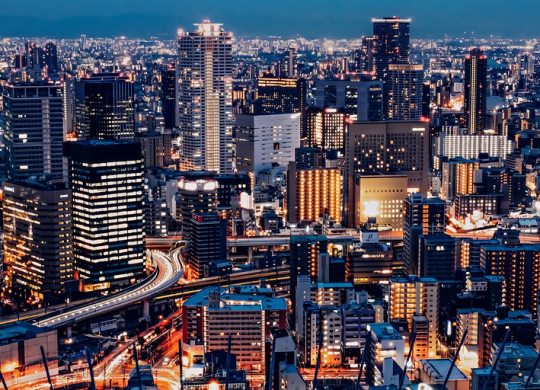Medicine and healthcare in Japan: medical tourism, hospitals, insurance

Japan holds leading places in life’s longevity rates. Its healthcare system is considered to be one of the world's most developed and up-to-date. Local clinics offer services of highly qualified staff only and the use of the most advanced technological and scientific methods.
Yet due to the striking lack of personnel, there is no such notion as pay-free or concessionary medical care. Thus developing a system of life insurance allows the Japanese to get qualitative aid at low prices. Such insurance allows people to spend less than 4% of their budget to get medical care for a family of four people, only one of which is employed.
Peculiarities of the Japanese healthcare system
In April 2020 Japanese government prohibited the export of local medical equipment, pharmaceutical innovations, and their lists of ingredients to foreign states. Thus Japan strives to preserve its unique technologies and contribute to the development of medical tourism.
Fun fact: to avoid copying, Japan allows its cosmetic companies to skip following ICNL when marking product ingredients.
Here are some peculiarities of the Japanese healthcare system:
• Prices for medical services and pharmaceuticals are regulated by the government. Thus Japanese citizens can get help in any clinic for the same price. It should be noted that 80% of medical institutions in Japan are private;
• Outpatient and inpatient treatment costs are relatively equal. As a result, there is a steady trend to transfer the patient to outpatient therapy as soon as possible. Also, modern antibiotic therapy and minimally invasive approach contribute much to this tendency;
• Outpatient practice is most often run by family physicians. 80% of patients use their services. At the same time, being a family doctor is a great honor. Young doctors can only get this position after acquiring three years of experience in a variety of specialties that include general surgery, internal medicine, pediatrics, emergency medicine skills, and psychiatry. It is also necessary to complete two years of training in specialized courses;
• Almost all residents of the country have mandatory health insurance. Such insurance can be provided by the employer or by the place of residence. Due to low fees for governmental insurance Japanese rarely turn to the services of private companies;
• All hospitals are equipped with up-to-date tech, including Da Vinci robots (in Israel not every clinic has them). Even those that are in remote corners of the country or rural areas;
• The Japanese carefully monitor their health and go to the doctor for any ailment. On the one hand, this approach makes it possible to detect diseases at an early stage, as well as to focus staff’s attention on diagnosis and rehabilitation. On the other hand, it creates an increased workload for clinics and reduces the time for a consultation (3-4 minutes on average);
• Every citizen of Japan has proficient first aid skills, as they are provided within a separate subject since middle school;
The most challenging issues of the Japanese healthcare system are difficulties with getting an appointment with a doctor, long queues caused by the lack of personnel, and the general “aging of the nation ''. A large number of elderly people compared to the young and active part of the population requires large state investments.
Medical care in Japan: foreigners
Despite globalization, the number of foreigners in Japan is growing exponentially. Most of the outlanders who turn to clinics have long-term visas which offer the same insurance products as the citizens of the state. However, the active development of tourism, especially medical (the level of service in Japanese clinics is higher, and prices are lower than those in Europe) requires certain investments from the authorities.
Since 2018 the government has been investing a lot in the development of medical tourism. But at the moment, most foreign tourists still face the following problems:
• language barrier and lack of translators;
• absence of a reasonable payment system: local doctors accept payments in cash or by credit card only. In addition, the Japanese usually pay for services only after the completion of a full cycle treatment. As a result, unpaid bills in hospitals grow fast:
• high workload due to lack of qualified specialists;
Fun fact: to reduce the workload of medical staff, all administrative issues and paperwork (referrals, certificates, appointments) were entrusted to artificial intelligence.
Medical tourism in Japan
Nowadays a lot of Japanese clinics can offer assistance to foreigners in the following areas:
• neurosurgery;
• gynecology;
• urology;
• oncology;
• ophthalmology;
• orthopedics;
Also, Japanese doctors have significant achievements in the field of cosmetic surgery and transplantology.
Recommended articles
3 min
Treatment
3 min
Treatment
The healthcare system in Sweden: a detailed guide for expats
Sweden's public health care system is one of the best in the world, and health insurance in the country is universal, meaning that both citizens and expats have the right to use services. A detailed guide to the Swedish health care system in our material
03 May. 2024
More details2 min
Residence permit
Moving to Japan in 2025: How to get a residence permit in Japan?
Japan is one of the most attractive countries to live and work in, but its migration system is quite complicated. Foreigners planning to move in 2025 need to follow a clear algorithm. Learn more about possible immigration paths, visa requirements, rules for legalization upon arrival, and employment opportunities
07 Jun. 2025
More details2 min
Work
Job in Japan for expats in 2024: labor market, work visa and basic requirements
Japan is a promising country for expats to move to, which attracts high quality of life and career prospects. Considering that in recent years the state has increasingly opened its doors to foreigners, local employers are increasingly hiring specialists from abroad. Find out what are the features of the Japanese labor market and how a foreigner can get a work visa in the country
04 Nov. 2024
More detailsAll materials and articles are owned by VisitWorld.Today and are protected by international intellectual property regulations. When using materials, approval from VisitWorld.Today is required.